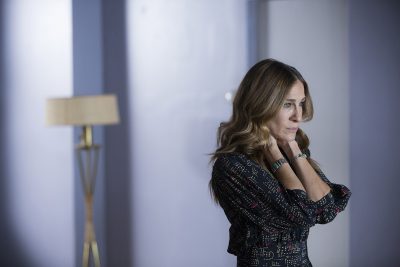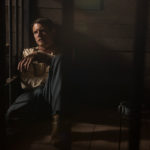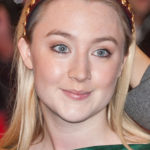
Sarah Jessica Parker is no rookie to the acclaimed television programming produced at HBO. With six seasons of “Sex and the City,” as well as two film sequels (released in 2008 and 2010), starring in a television drama centered around romantic relationships is by no means a brave new world.
However, with her latest television project, there is a sense that Parker has begun to make a departure from the Carrie Bradshaw of her past; in “Divorce,” which premiered Sunday, the theme is that of dissolving relationships rather than developing them, and there is an underlying feeling that with maturity, divisive conflict is increasingly overpowering.
Parker plays Frances, a middle-aged woman in a suffering relationship with her husband, Robert (Thomas Haden Church). From the first scenes of the pilot, it is clear that tensions exist. Moments that would — in traditional, slapstick comedies — function as a punchline, simply exist, balancing on a tightrope between two characters unwilling to be receptive of such humor. In many ways, the pains of coexisting overpower the humor, a dominance that continues throughout the first episode.
Far less conflictual, yet still dysfunctional, is the relationship between Frances and Diane (Molly Shannon), her recently-turned-50 yet youthfully raunchy close friend. Shannon, who refined her sarcastic chops as a cast member of “Saturday Night Live” from 1995-2010, grants Diane a character with a short fuse and a foul mouth.
She deals snarky, indignant remarks on death and drunkenly rants with her husband, Nick (Tracy Letts). Diane is both the comedic relief and the source of conflict. As a supplier of chaos and punchlines, her character serves as the cornerstone on which the comedy of the show is formed.
She also serves as one of the strongest reminders of Parker’s “Sex and the City” days. With a short temper, numerous sexual references and a youthful nature, Shannon’s character draws many similarities to Kim Cattrall’s Samantha, who also served as the funny, bubbly friend in times of distress.
Another supporting character, Dallas (Talia Balsam), functions as the most reasonable of the friend group. She carries the mature features of “Sex and the City” favorite Miranda (Cynthia Nixon), but with evidently far fewer dimensions. While parallels certainly exist, it is clear that the dynamic doesn’t focus on friendship and discussions of sex life over brunch, but rather the separation of relationships for which there is no column post. “Divorce” is a far cry from the sitcom days of “Sex and the City,” and a ready departure from Carrie Bradshaw.
The humor in “Divorce” is blatant, yet seems stifled by the drama of the show. Each moment of laughter is a nervous one, as it is typically followed by heavy topics such as ending relationships and physical and emotional affairs. Trustworthiness serves as a domineering, dramatic element to the show, exemplified through Robert’s lurking and investigation with malicious intent.
Between Frances’ affair and her husband’s discovery of it by calling contacts in her phone, it is difficult to find any of the characters worthy of trust and commitment. Even Diane, the most transparent character on the show, is emotionally unstable to the extent that manipulation on her part doesn’t seem unlikely.
For this reason, the theme of pain felt by the characters is a pain also felt by the viewer; given that the comedy of the program falters under the dramatic scenes of the pilot, there is a certain degree of heaviness that is left behind as the show concludes.
Resolutions, albeit small, do exist within a single scene — an argument between Frances and her children results in apologies on both ends — but it is clear that the majority of emotional gaps are bridged by material offerings of goods and sexual pleasure. Expectations simply aren’t met for the characters within the show between themselves and their partners. A longing for the unity of a solid relationship extends to the viewer in what feels like a desire to have just one healthy partnership upon which comparisons could be made.
Distress extends from the screen to the viewer in moments of extreme chaos and tender rejections, cementing drama as the more dominant of two genres that will certainly pervade throughout the series.
As Frances says in a conversation with her husband, “Maybe we can go back to just liking each other.” That “maybe” hangs in the air, but it offers some hope that “Divorce,” marketed as a comedy, will better fulfill such classifications in future episodes. The weight of the premier, in concept and material, is insisting on laughter where instead there is anxiety and heaviness.





I loved it! I thought it was a brutally honest portrayal of a typical marriage. I wasn’t expecting to laugh out loud. However; I was thoroughly entertained and I recommended the show to my sister. I thought the acting was wonderful and the writing definitely struck a chord with me. That first episode was certainly written for a female but I’m excited to see what develops, I’ll definitely be tuning in.
I loved it too! The fact that the humor is fused with the discontent, anger, and frustrations inherent in a marriage teetering on the brink of divorce give the show a realistic edge and makes it cut above the usual sitcom fare.
I love it too. The fact that the humor is fused with the anger and frustration of a marriage teetering on the brink of divorce gives the show a realistic edge that makes it a cut above the usual sitcom fare.
Sarah, we love you for you, of course. Your natural charm and artistry keep us coming back for more.
Remember though, we also love your beauty and style. Your costumes in Divorce are beautifully tailored. However, they are more suitable for a woman much older than you are. Even when you are much older, bolder colors and more striking styles will suit you better.
It must be monumentally difficult to strike just the right note stylistically. Please let your character dress her age and be unafraid of looking pretty and sexy upon occasion. The sex scenes in the first episode, for instance, could certainly have featured prettier lingerie. Wide screen TV’s can also detract from the appearance of muted costumes.
The hair and makeup are flawless, and your figure is, as always, gorgeous. Your performance is magnificent. It would be wonderful if you would allow your costumes to more accurately reflect these wonderful things about you.